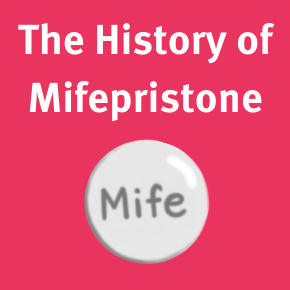Insights: RH Negative Treatment After Early Pregnancy Loss or Termination
Do Rh negative women who experience first trimester loss or who obtain a first trimester abortion require immunization with rho (d) immunoglobin (RhoGAM)?
Rh negative women who become exposed to Rh positive blood may become ‘alloimmunized,’ or develop anti-Rh antibodies. Women with Rh alloimmunization may have complications in future pregnancies, including hemolytic disease of the newborn. Rho (D) immunoglobulin (marketed as RhoGAM, containing 300 mcg) was developed to prevent the maternal formation of anti-Rh antibodies, and is routinely given to women during their third trimester of pregnancy.
A maternofetal hemorrhage can occur during bleeding episodes. In theory, a bleeding episode at any point in pregnancy puts women at risk for exposure to and immunization against Rh proteins. However, the need for RhoGAM during the first trimester is unclear, as overall blood volumes are low, and there is minimal data supporting its use.
Many providers administer a smaller dose of immunoglobulin (marketed as MICRhoGAM and containing 50 mcg) to women in the United States who experience bleeding episodes in the first trimester. Despite the lack of evidence in its support, administration of RhoGAM and MICRhoGAM is safe, with no reported adverse effects. There continues to be controversy in organizations including ACOG about the use of Rh immunoglobulin after bleeding episodes in the first trimester despite at least 40 years of research and debate.
The big picture:
The use of RhoGAM after first-trimester miscarriage or abortion is controversial and the standard of care in your community and cost should be considered. Despite the lack of medical evidence to its benefit, RhoGAM confers minimal risk.
In low-resource settings where Rh testing or use of RhoGAM is difficult, Rh unknown or negative status of a woman in the first trimester should not interfere with her ability to receive an abortion, as the risk to future pregnancies has not been documented.
References:
ACOG practice bulletin. Prevention of Rh D alloimmunization. Number 4, May 1999 (replaces educational bulletin Number 147, October 1990). Clinical management guidelines for obstetrician-gynecologists. American College of Obstetrics and Gynecology. Int J Gynaecol Obstet 1999 Jul; 66(1):63-70
Deutchman M, Tubay AT, Turok DK. First trimester bleeding. Am Fam Physician 2009;79:985-94.
Bowman JM. The prevention of Rh immunization. Transfus Med Rev 1988;2:129-150.
Ascari, W.Q. Abortion and maternal Rh immunization. Clin Obstet Gynec. 1971; 14: 625.
Pharma-free
Insights into abortion and miscarriage care is a publication of the Reproductive Health Access Project and Innovating Education in Reproductive Health, a project of the Bixby Center for Global Reproductive Health, UCSF. The Reproductive Health Access Project and Innovating Education in Reproductive Health do not accept funding from pharmaceutical companies. We do not promote specific brands of medication or products. The information in the Insights is unbiased, based on science alone.

